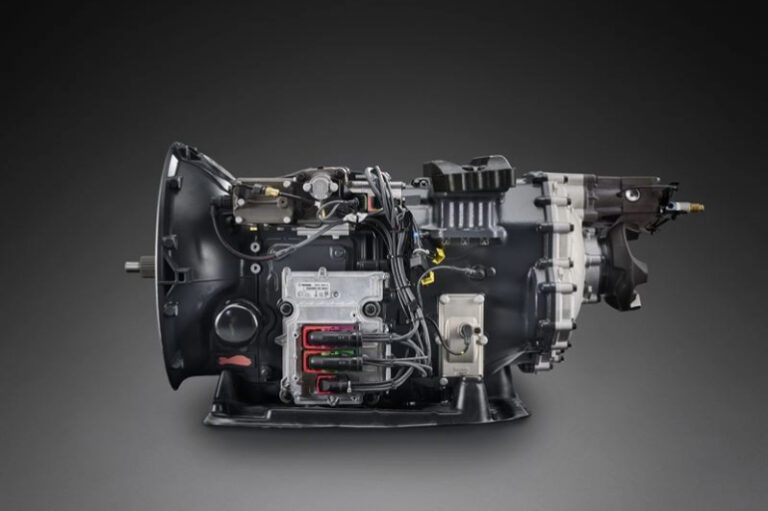In a world-first for truckmakers, Scania’s has integrated reused components into its main assembly line in Sweden as part of a gearbox remanufacturing project that required around 50 percent less material and produced 45 percent fewer emissions.
The historic achievement took place earlier this year as part of the iReGear joint research project with KTH Royal Institute of Technology and Scandinavian Transmission Service AB, and was made possible with funding from Swedish innovation agency Vinnova.
The ‘remanufactured’ gearbox was subject to the same rigorous inline quality and function tests as gearboxes that are made from entirely new parts, with monitoring of some 100 quality and function parameters.
According to Scania, the gearbox duly met all those requirements and could therefore be confirmed as being ‘as good as new’, which ensures that it meets the quality and performance standards for being installed on Scania vehicles.
As well as the remanufactured gearbox being as good as new, the actual production process showed significant environmental advantages. While replacement rates during gearbox remanufacturing can vary between roughly 10 percent to 100 percent depending on wear-and-tear history, this particular gearbox consumed half as much material.
Remanufacturing, which sees the reuse of old parts to create new products with good-as-new quality, is viewed by the automotive industry as a promising strategy for achieving climate goals and supporting the transition towards a circular economy.
It also addresses increasing resource scarcity issues. In spite of its great potential, remanufacturing in the European automotive sector is mainly confined to making spare parts for the aftermarket, which account for only 1.1 percent of new manufacturing according to the report by the European Remanufacturing Network.
The wider adoption of the process requires vehicle manufacturers to integrate the remanufactured components directly into the production lines of new vehicles, rather than using them separately in sales to the aftermarket business, Scania says. The truckmaker hopes that the pioneering iReGear project will help lead the way for the industry to make this necessary shift in the efforts to create a more sustainable and cleaner transport industry.
“What an achievement by the project and everyone involved,” said Scania Head of Sustainability, Fredrik Nilzen.
“This remanufactured gearbox is a compelling example of how the manufacturing of heavy vehicles can become more sustainable, circular and efficient, while still retaining the highest quality standards.”






